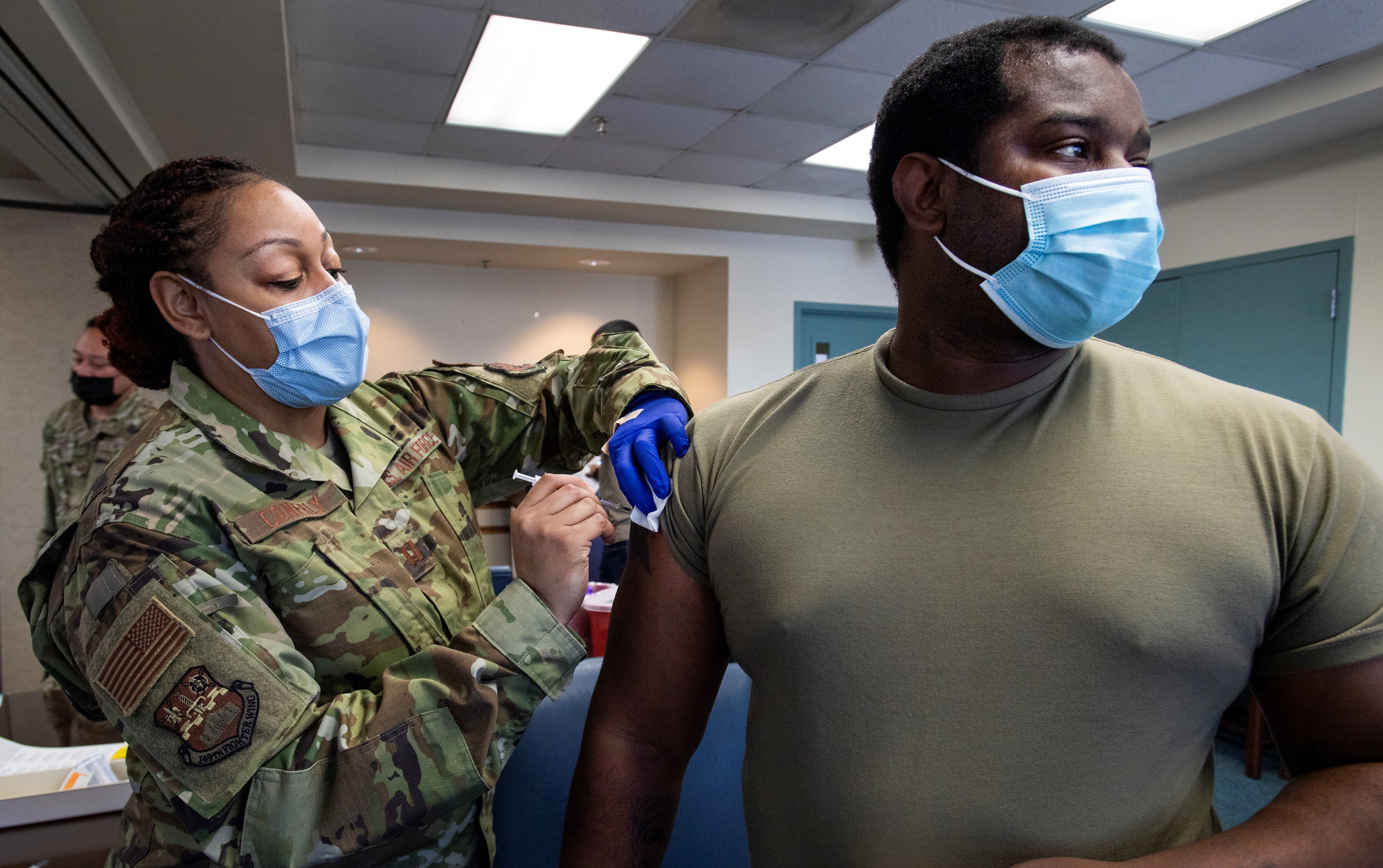A month after the Defense Department canceled the requirement that service members are vaccinated against COVID-19, the Pentagon’s personnel and readiness office has yet to complete the requested paperwork to make the change a reality for thousands of unvaccinated troops in limbo.
The long delay has prompted lawmakers to reach out to Defense Secretary Lloyd Austin with their concerns.
Defense Under Secretary Gil Cisneros, DoD’s personnel chief, told Military Times on Jan. 11 that his office was looking into specific policies on religious considerations and combatant command regulations with respect to traveling to countries with vaccine mandates.
“There are still things that we need to kind of tie up,” he said.
But that process is still ongoing, a Pentagon spokeswoman told Military Times Thursday, though lawmakers first asked for an implementation plan on Dec. 23.
“The Department is working to leverage existing policies and procedures, where appropriate, to manage post-repeal issue sets and is examining whether additional guidance is necessary,” Cmdr. Nicole Schwegman said.
In a Feb. 8 letter sent to the Pentagon, the chairman of the House Armed Services Committee and the chairman of its subcommittee on military personnel pressed Austin for answers on the new guidance, saying that a Jan. 26 letter from his office on their progress was only four sentences long and “failed to include any implementation plan.”
“While we acknowledge and appreciate your rescission memorandum writ large, many questions remain and have gone unanswered regarding the implementation of the rescission,” Rep. Mike Rogers, R-Ala., and Rep. Jim Banks, R-Ind., wrote in the letter.
The representatives included a list of 14 questions for DoD, including data on involuntary separations for vaccine refusal, service members required to pay back bonuses and confirmation that any academy graduates denied their commissions for refusing the vaccine were still able to earn their college degrees.
The letter also asks whether DoD intends to offer reinstatement for any troops discharged because of the mandate.
RELATED

Though Republican lawmakers have pushed for that provision since last summer, it was not part of the 2023 National Defense Authorization Act, the law that compelled Austin to rescind the mandate.
Since the new Congress came into session, Republican members have reopened that discussion with bills introduced in both the Senate and House of Representatives.
“I’m glad that we were able to remove the COVID-19 vaccine mandate last Congress, but there is more work to do,” said Sen. Ted Cruz, R-Texas, in a statement. “[This bill] would correct the wrongs done to unvaccinated service members who were discharged for exercising their conscience.”
The bill would allow reinstatement of any separated troops, as well as restore rank and back pay for any troops who faced discipline before their discharges. It would also upgrade any general discharges.
Previously, separated troops’ reasons for discharge were noted in their paperwork, allowing them to come back into service if they got vaccinated.
Now, under Austin’s rescission memo, they can apply for a records correction with their service’s board, and ostensibly re-enlist or re-commission if they choose.
What the Pentagon is not considering, however, is offering restitution for vaccine refusal.
“We are not pursuing, as a matter of policy, backpay for those who refused the vaccine,” Air Force Brig. Gen. Pat Ryder, a Pentagon spokesman, told reporters in January. “At the time that those orders were refused, it was a lawful order.”
Rogers and Banks requested a response from DoD by Feb. 22.
Meghann Myers is the Pentagon bureau chief at Military Times. She covers operations, policy, personnel, leadership and other issues affecting service members.





